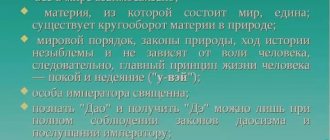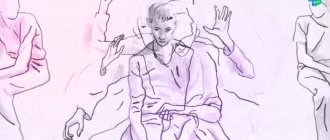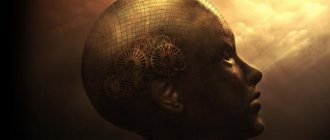Taoism is one of the oldest religious and philosophical teachings. It originated in Ancient China and gradually absorbed all the accumulated knowledge about nature and the surrounding world. Some key concepts (such as Tao and yin-yang) are known to most people. But to understand the essence of Taoism and know its meaning, it will take many years. We will briefly consider its main ideas, as well as the history of its origin and development.
What is Taoism?
Taoism is the traditional Chinese teaching of the “way of things.” Sometimes it is divided into philosophical (Tao Jia) and spiritual (Tao Jiao) components. But such a division is very conditional, and it is more appropriate to talk about a single religious and philosophical teaching that seeks to provide answers to all questions in all spheres of life. Taoism arose in the 5th century BC , making it one of the oldest teachings in the world.
The key concept of Taoism is Tao (literal translation from Chinese is “path”). This is the highest law of the world order, the path along which everything that exists moves. According to this concept, any material thing goes through its path from origin to disappearance. In the understanding of Chinese philosophers, Tao is an eternal action or principle of creation, ensuring the unity and duality of things , determining the natural movement of everything in nature.
Unlike other religions, Taoism does not consider such a concept as life after death. Instead, Taoists strive to overcome their passions and desires in order to achieve unity with the Tao during their lifetime, tantamount to immortality.
As noted above, Taoism is a religious and philosophical teaching, and within it two directions can be roughly distinguished:
- Tao Jia - philosophical knowledge of the Universe and existence;
- Tao Jiao is a religious teaching and spiritual practice.
But still, such a division is conditional, and Taoism is more appropriate to consider as a complex system that combines both spiritual and philosophical aspects.
Basic ideas of Taoism
The main concept in Taoism is Tao. This is a world law that determines the existence of all things from the moment of origin to the moment of disappearance. Everything in our world is subject to Tao: things and people, thoughts and ideas, the Moon and the Sun. Even the Universe itself has a beginning and will someday come to a natural end, obeying this principle.
It is believed that if a person can understand the Tao, he will achieve immortality. And the process of this knowledge involves the application of efforts in two directions:
- Nourishment of the soul. We are talking about spiritual harmony, overcoming passions and desires for the sake of comprehending the Tao.
- Nourishment of the body. This refers to the attitude towards food, breathing, exercise, sex and other natural needs. Taoism requires adherence to a strict diet in everything, and the ideal is a complete transition to spiritual sources of nutrition and refusal of ordinary food.
In Taoism, it is believed that these two elements are sufficient to understand the Tao and achieve immortality of soul and body in this world.
Another important concept is De (virtue or morality). It does not imply targeted, highly moral influences on the world around us. Within the framework of this teaching, the strength of spirit is implied, which must be present in a person so that he can cognize the Tao.
Another important concept of the teaching is Wu-wei - non-action . This is a refusal to engage in purposeful activities that may disrupt the natural course of events. Wu wei does not imply passivity. Its essence is that a person must understand when to act and when to remain inactive. Taoists consider this idea correct even in the field of government, arguing that the best sovereign is the one who does nothing at all. He holds office in order to inspire the people, personify state power and prevent unrest.
Taoist lifestyle
Taoists practice stopping the flow of thoughts: this prevents them from getting bogged down in everyday worries and thoughts about everyday life.
In their diet, Taoists do not allow excesses, are ascetic, follow a diet (refusal of meat) and sometimes fast. According to Taoism, ideal nutrition is the dew of herbs and your own saliva
During fasting and strict diets, Taoists seem to “forget” about nutrition, shifting their attention to other things
Regular physical exercise and breathing practices are required. Taoists often use acupuncture and special massage, which they believe distribute energy evenly throughout the body and increase the efficiency of its expenditure. Sexual relationships with a regular partner are encouraged. Sex is seen as therapy and a means to strengthen relationships.
What is Tao?
As we have already found out, the word “Tao” is translated as “path”. In Confucianism, this word refers to a person’s life path. In Taoism, Tao personifies the law according to which every object, every phenomenon and every living creature exists. This is the absolute to which all objects and phenomena known to us are subject. Tao implies that the whole world is in continuous motion - everything changes, everything has a beginning and an end, and only Tao is eternal.
Conventionally, Tao can be considered the supreme deity in Taoism, although this is an incorrect statement, since Tao is not a god. Tao is the fundamental principle, the main principle and law, indicating the direction of movement of all things, including the Universe.
The greatest happiness for a follower of Taoism is knowledge of the Tao and unity with it. It is believed that this state can be achieved only with strict adherence to the rules prescribed by the teaching, on the spiritual and physical levels. The need to observe them is explained by the fact that divine spirits and evil demons fight for the soul of every person. Some actions feed spirits, others - demons. And the teaching prescribes exactly how one should behave in order to strengthen spirits and weaken demons.
[edit] Links
- The Tao of Programming (more)
- Tao of the enlightened fucker
- The Tao of Pooh “It’s more like…the Tao of Pooh,” said Pooh, rubbing his paw.
- The Tao of Star Wars - Not a bad research book.
- Tao in Zhezheshechka is the only place in the universe where Tao has not yet managed to penetrate.
- Taoist parables
- Good site about Tao
| [ + ] Taoism originated from China. | |||||||||
| |||||||||
| [ + ] “Taoism is the opium of the people!” | |||||||||||||||||
| |||||||||||||||||
The connection between Taoism and Confucianism
Confucianism is an ethical-social, moral, political, religious and philosophical teaching developed by Confucius at the turn of the 6th and 5th centuries BC. e. This was a difficult time in the history of Ancient China, so the main task of the teaching was to ensure the harmonious existence of society and the state. It pays a lot of attention to such points as respect for government authority, compliance with laws, and reverence for traditional values.
It is believed that the founder of Taoism, Lao Tzu, was familiar with Confucius and was interested in his teachings. But over time, he realized that the ideas of Confucianism were alien to him. This understanding intensified as he became disillusioned with Chinese statehood. This was the reason that he created a new teaching , which in many respects was the complete opposite of Confucianism. He outlined the main ideas in the famous treatise “Tao Te Ching” (Book of Path and Virtue).
Thus, Taoism is initially in opposition to Confucianism. And the main disagreement between them lies in the interpretation of the concept of “Tao,” which is basic for both teachings. For Confucius, Tao is a person’s path, his personal choice made for the sake of achieving the common good. In Taoism, the path is an absolute, a natural state of affairs that does not depend on a person. While Confucianism preaches respect for state authority, Taoism believes that the state should not interfere in people's lives.
Comparative analysis
Confucianism and Taoism have common cultural roots; both faiths adopted the traditions of primitive religion with its cult of nature:
- Ancestor cult belongs to Confucianism. But the principles of the cult (filial piety, for example) are characteristic of the entire Chinese society;
- Taoism is characterized by polytheism, Confucianism is dominated by the cult of the emperor and Heaven;
- Confucianism is the path to perfection through self-restraint, suppression of base passions, and remaking oneself. The teaching encourages constant social activity. The main emphasis is on moral and moral principles;
- Confucianism refers to man as a social being, in whom reason should prevail over feelings, Taoism - as a creature of nature, with all its advantages and disadvantages, emotions and passions;
- Taoism accepts a person as he is;
- The main virtue of Taoism is non-action, since attempts to change anything in nature or society violate the natural order of things.
Founders of Taoism
The key ideas of the teaching are set out in the above-mentioned treatise by Lao Tzu “Tao Te Ching”. Interestingly, the author’s name can be translated as “Old Baby” or “Old Philosopher.” No reliable information about his biography has been preserved; even the claim that he knew Confucius is called into question. Most of the records about the philosopher's life are more myths than real historical facts.
For example, it is claimed that Lao Tzu's mother became pregnant after eating a piece of rock crystal. She gave birth to a son only many decades later, which is why he was born as an old man (which is why he received such an unusual name). Due to the controversial "biography", many modern researchers doubt that such a thinker even existed. They assume that the Tao Te Ching is a collective work of several authors, and Lao Tzu is their common pseudonym (like, for example, Kozma Prutkov).
The next major representative of Taoism who made a significant contribution to the development of the doctrine was Zhuang Zhou , an ancient Chinese philosopher who lived approximately in the second half of the 4th century BC. e. He wrote the book “Zhuang Tzu,” which is a collection of short stories and parables. This book, along with the Tao Te Ching, is considered one of the key treatises of the teaching.
Stages of development of Taoism
After Lao Tzu and Zhuang Tzu, the development of the teaching stopped for some time. It was only in the 1st century AD that Taoism gained popularity among the thinkers of that time, and new schools began to emerge. The very first and most famous of them was the “Five Buckets of Rice” (later it was renamed the “School of Heavenly Mentors”). It was founded by Zhang Daoling, a thinker who refused a high government position and became a hermit.
Later, the “School of Heavenly Teachers” split, and after some time it was restored, but under a different name. Along the way, other schools arose, in each of which Taoism acquired some of its own shades. Gradually, one of the key ideas became the achievement of longevity and even immortality through knowledge of the Tao. Thanks to a large number of schools and directions, teaching began to develop very quickly, and about 1,500 books and essays written by different authors have reached our time.
Taoism had to face a serious test in the 17th century - during the Qing Empire (not to be confused with the Qin Dynasty), which considered this teaching (as well as other philosophical disciplines) pseudoscientific. Supporters of Taoism were persecuted, books were burned, and schools were banned. This situation continued until the fall of the Qing Empire in the early 20th century, and it was only in the 1960s that Taoism began to recover and gain popularity again.










